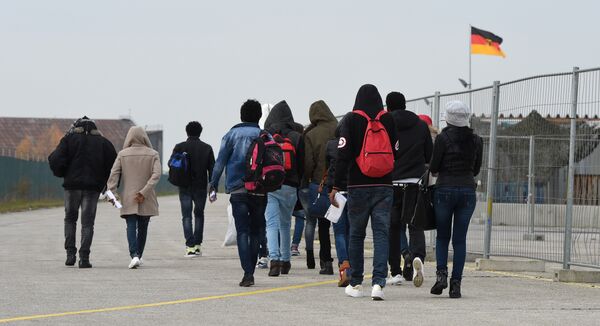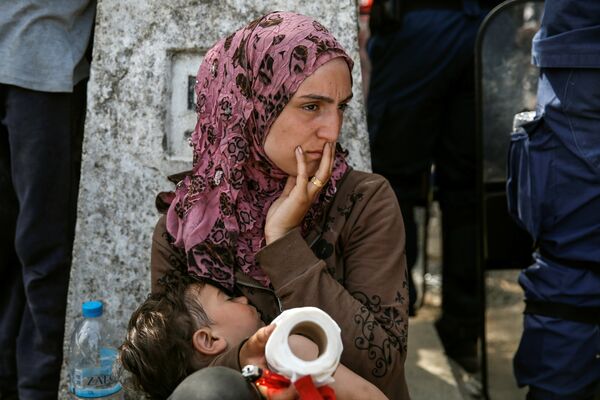The deal is steadily unraveling as it nears its first anniversary. Travel bans imposed on Turkish politicians by Austria, Germany and the Netherlands in the lead up to the country's April 16 constitutional reform referendum, which has seen a plane carrying Turkish Foreign Minister Mevlut Cavusoglu prevented from landing at a Dutch airport, have provoked angry condemnations from President Recep Tayyip Erdogan's administration.
In addition to well-publicized "Nazi" jibes, ministers have repeatedly threatened to scuttle the refugee deal — Interior Minister Suleyman Soylu went as far as threatening to flood Europe with refugees.
"I'm telling you, Europe, if you want we'll send the 15,000 refugees to you we don't send each month and blow your mind. Do you have that courage?" Soylu said.
The public war of words between Ankara and Brussels has been primarily onesided, however, with responses from EU member states, leaders thoroughly subdued — this reticence is perhaps unsurprising, given the EU has consistently claimed the deal is a great success, which has helped avert a major crisis. It is committed to preserving it at all costs as a result.
EU-Turkey deal: rather than showing leadership to solve the #refugee crisis, Europe sold out. Take action: https://t.co/KcKMi482oF #RealDeal pic.twitter.com/ecCYx24ecK
— Salil Shetty (@SalilShetty) 17 March 2017
Nonetheless, the end of the deal may be welcomed by its targets, as two separate reports have suggested migrants trapped by the deal are subjected to inhumane and potentially illegal treatment. First, on March 13, aid agency Doctors Without Borders issued an appraisal of the deal accusing the EU of falsely suggesting the arrangement with Turkey is a success.
"EU officials fail to mention the devastating consequences of this strategy on the lives and health of the thousands of refugees trapped on Greek islands and in the Balkans. Leaders must radically change their approach to migration and ensure a swift end to the unnecessary suffering. The sharp decrease in people reaching European shores since implementation hides a much darker reality — those who wish to seek safety and protection have no choice but to stay where they are, exposed to danger, or risk their lives trying to reach Europe via alternative routes," the group said.

On March 17, a joint-report issued by the International Rescue Committee, the Norwegian Refugee Council, and Oxfam said the deal "is playing roulette" with some of the world's most vulnerable citizens them to live in degrading conditions, and barring them from exercising their right to a fair asylum process.
"The right of refugees to have their individual asylum claims examined is crucial to protect people against being returned to a place where they may be at risk. However the primary focus [of the deal] is on whether people can be returned, without assessing individual cases. People fleeing Syria, for instance, need to go through an 'admissibility' procedure, which does not assess the individual reasons why people were forced to flee," the report said.
Moreover, asylum seekers held on Greek islands are sheltered in tents, even during freezing weather, and continue to be exposed to risks to their health and wellbeing daily, with many having limited access to basic services such as medical and psychological support to help overcome trauma.

Despite evidence the approach enshrined by the deal has encouraged other European countries to question their responsibility to offer protection to refugees, the EU is currently seeking similar agreements with other countries, such as Libya.
The trio of organizations behind the report urge that under no circumstances should the deal be replicated with other countries.



